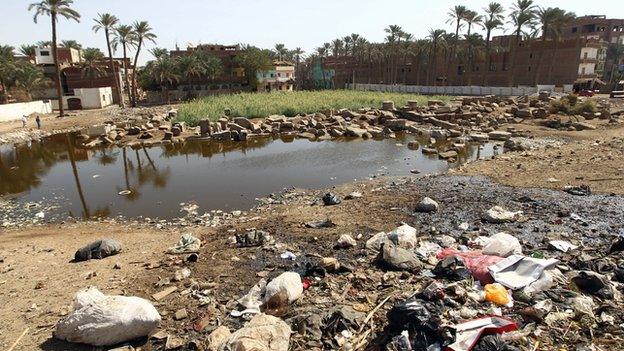New mummies discovered in tomb near Luxor, Egypt
- Published
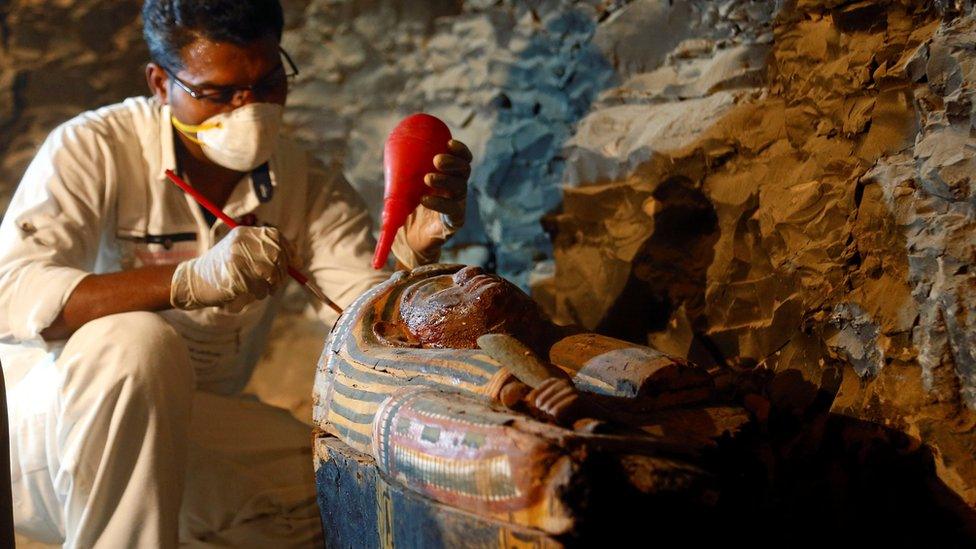
The tomb belonged to a man named Amenemhat
Archaeologists in Egypt have discovered the tomb of a royal goldsmith containing the mummies of a woman and her two children, authorities said.
The tomb, dating back to the New Kingdom (16th to 11th Centuries BC), was found near the Nile city of Luxor, 400 miles (700km) south of Cairo.
Among the items discovered inside was a statue of the goldsmith Amenemhat, sitting beside his wife.
It is unclear whether the three mummies discovered are connected to Amenemhat.
The mummies were found down a burial shaft leading off the main chamber, Egypt's Ministry of Antiquities said.
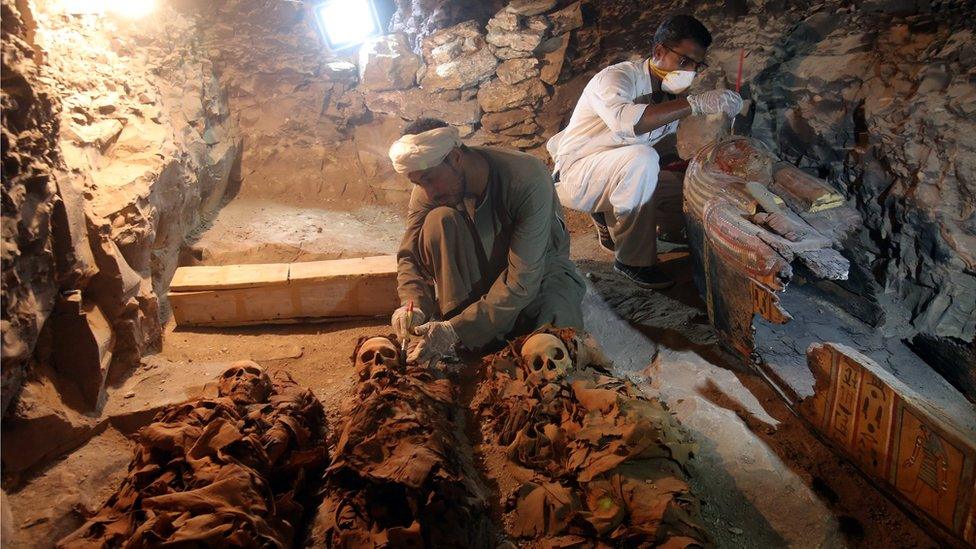
The tomb was found in the Draa Abul Naga necropolis, which was used for officials
According to the archaeologists, the mother died aged about 50, with tests revealing she had a bacterial bone disease. Her two sons were in their 20s and 30s and their bodies said to have been preserved in good condition.
Authorities believe the tomb of Amenemhat, who was goldsmith for the god Amun, the period's most powerful deity, could lead them to further discoveries in the Draa Abul Naga necropolis, an area famed for its temples and burial grounds.
Minister of Antiquities Khaled al-Anani said: "We found many objects of the funerary equipment inside and outside the tomb. We found mummies, coffins, funerary combs, funerary masks, some jewellery, and statue.
"The work did not finish yet."
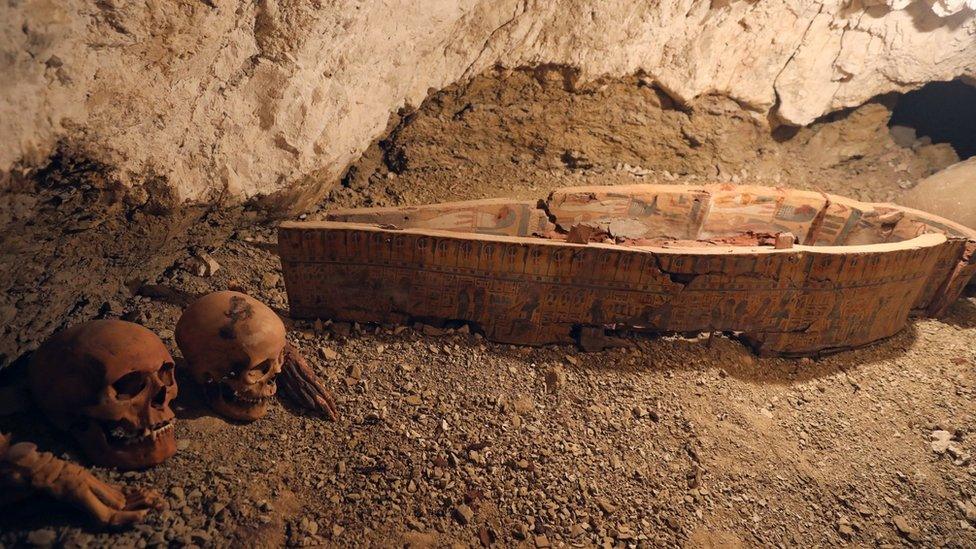
The bodies of the male mummies are said to be in good condition
Mr Anani said archaeologists had read four new names.
"What about those four new names? How about their tombs? Their tombs are not discovered yet. But I believe they are owners of the tomb," he said.
"I believe, inshallah, for the coming season, we are going to do our excavations. We are going to do our excavations in this area. So I believe we can find one, or two or maybe four if we are going to be very lucky, four of them in this area."
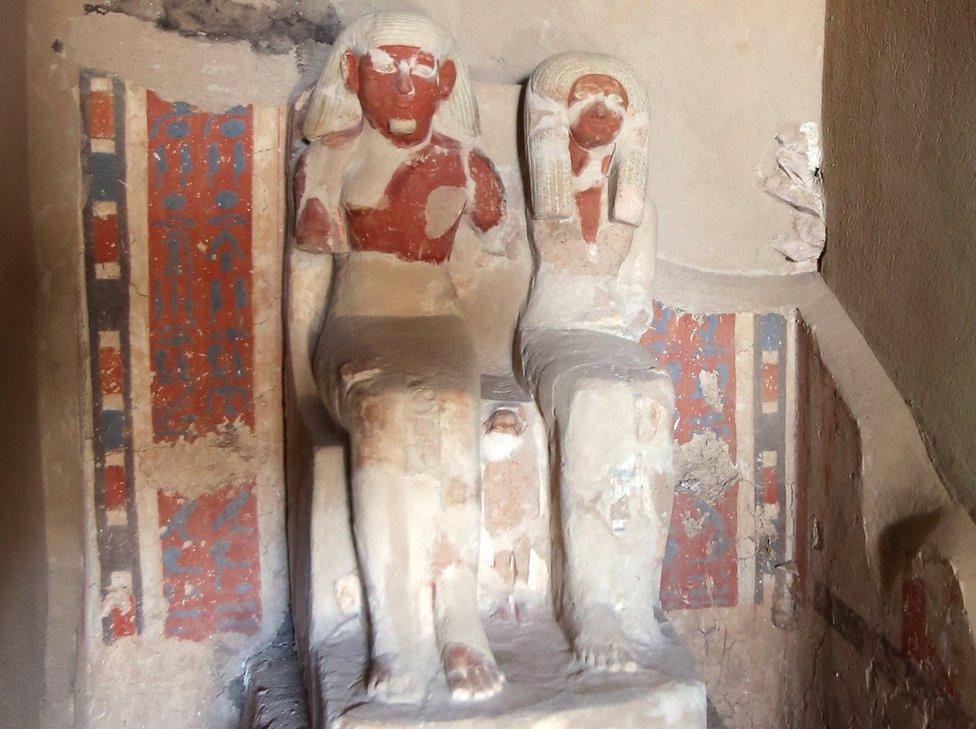
Amenemhat's son is depicted as sitting between him and his wife
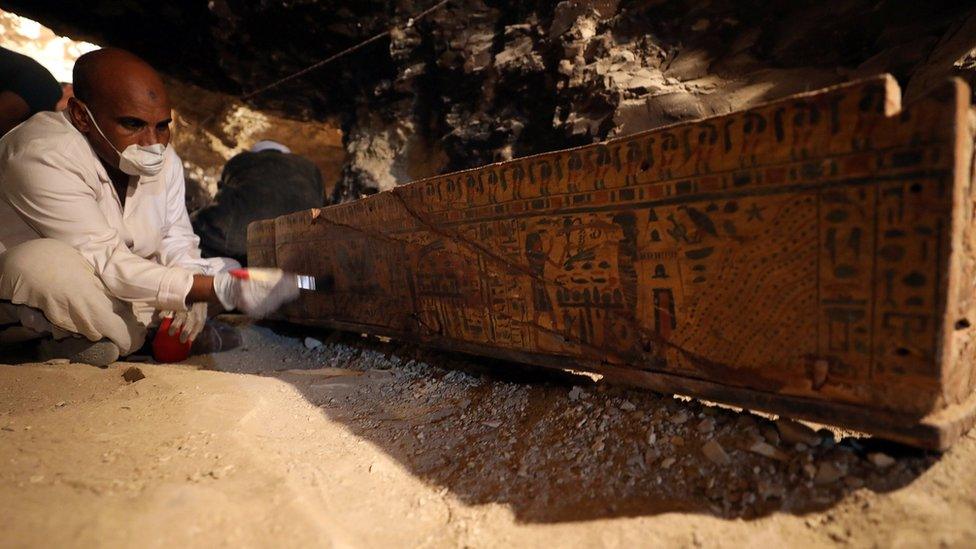
The discovery is the second big find for archaeologists in the area this year
- Published18 April 2017
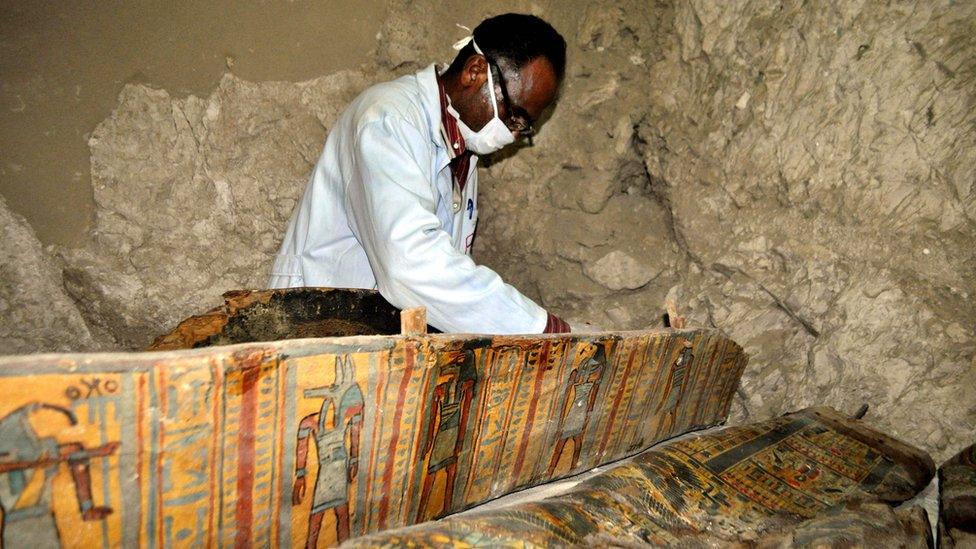
- Published5 February 2015
